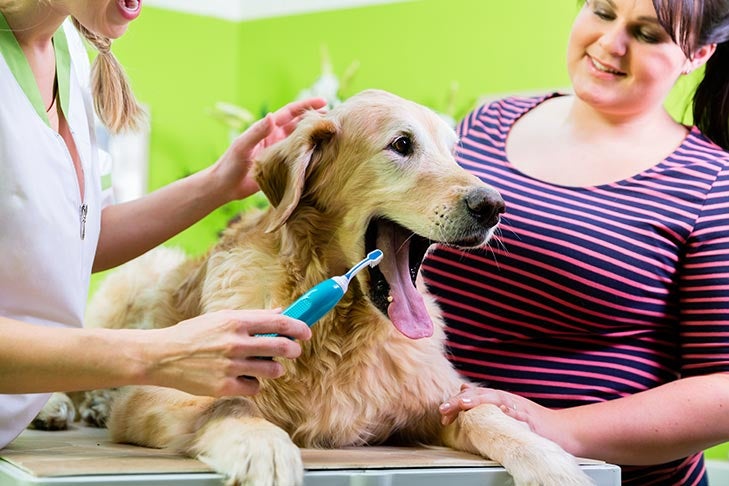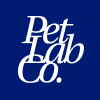
AKC is a participant in affiliate advertising programs designed to provide a means for sites to earn advertising fees by advertising and linking to akc.org. If you purchase a product through this article, we may receive a portion of the sale.
Paid Advertisement
Has anyone ever told you that dogs don’t need dental care because they keep their teeth clean naturally by chewing? Unfortunately for our canine companions, this is not entirely true. Dental health is just as important for dogs as it is for humans. Luckily, keeping your pup’s teeth clean is surprisingly simple.
What You Should Know About Canine Dental Care
Your veterinarian’s insistence that your canine companion needs a dental cleaning addresses far more than the issue of a dog’s stinky breath. Poor dental hygiene can result in a host of medical problems. Some of the more common issues are gingivitis, periodontal disease, tooth loss, infection, and difficulty eating.
Plaque builds up on canine teeth, just like it does on human teeth. Over time, a buildup of plaque can lead to inflammation of the gums, called gingivitis. Dogs with gingivitis may have red, inflamed gums that bleed easily, and you may also notice bad breath. If left untreated, gingivitis can lead to periodontitis.
Periodontitis can cause destruction to the connective tissues surrounding the tooth and can also damage the bone. Most concerning, however, is the detrimental effects periodontitis can have on your dog’s heart, kidneys, and liver.
Providing Dental Care for Your Dog
Don’t wait until you notice a bad odor in your dog’s mouth to pay attention to his teeth. As with people, proper dental hygiene begins with brushing teeth. Most dogs learn to tolerate and even enjoy toothbrushing. Dog toothpaste comes in several canine-friendly flavors, like peanut butter and chicken, and both child-sized toothbrushes with soft bristles or finger brushes are appropriate to use when cleaning your dog’s teeth at home. Human toothpaste, however, contains ingredients like xylitol, which is toxic to dogs and should be avoided. Daily brushing might seem excessive, but it can save your pup trouble down the road and reduce the risk of more expensive procedures, like a tooth extraction.
Dogs can also benefit from dental cleanings at the vet’s office. These in-depth procedures take place under anesthesia and remove plaque below the gum line, where toothbrushes can’t reach. Dental cleanings are especially important for dog breeds with genetic predispositions for dental disease, like many small breeds, or dogs fed wet food.
While they are not a substitute for brushing and regular cleanings, dog chew toys can help keep your dog’s teeth clean. Talk to your veterinarian about the best ones for your canine companion, and avoid extra hard toys, like bones or antlers, as these can lead to dental fractures. Dogs that do not enjoy chewing on toys may be candidates for special dental diets, chewy dental treats, dental water additives, or additional preventative measures.
PetLab Co. helps give our best friends the richest, healthiest lives possible through the power of scientific nutrition. To date, they’ve impacted the lives of over three million dogs and counting. Their products are vet-reviewed, NASC-approved, and manufactured in the USA in GMP-compliant facilities with global and domestic ingredients. To learn more visit www.thepetlabco.com.
This article is intended solely as general guidance, and does not constitute health or other professional advice. Individual situations and applicable laws vary by jurisdiction, and you are encouraged to obtain appropriate advice from qualified professionals in the applicable jurisdictions. We make no representations or warranties concerning any course of action taken by any person following or otherwise using the information offered or provided in this article, including any such information associated with and provided in connection with third-party products, and we will not be liable for any direct, indirect, consequential, special, exemplary or other damages that may result, including but not limited to economic loss, injury, illness or death.


